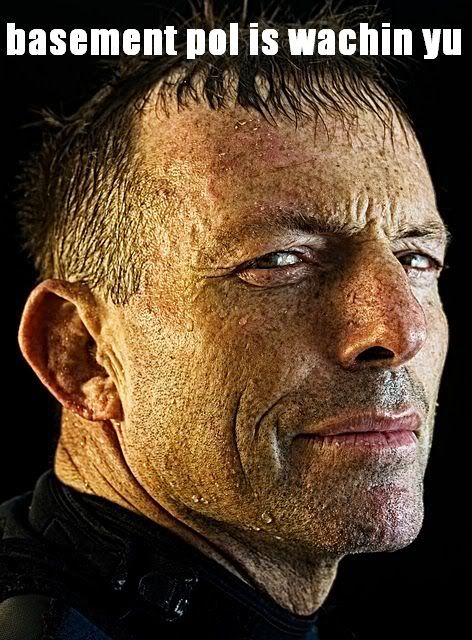As to the examples cited by Marc, one difference with the dismissal of Rudd is that there wasn't the kind of political catastrophe like Thatcher's poll tax (the role of the riots and protests over that are I believe very much underestimated in Major's leadership challenge.) And Mulroney reached Bushian levels of unpopularity. I didn't think Rudd had bottomed out like that, which is exactly why he can be drafted to campaign for Gillard. (Or so the bosses hope.)
Rudd decided to hit mining companies with a whopping 40% tax on any profits above 5%, retrospectively applied to projects already underway. This was a monumental, final miscalculation that cost him his job.
Mining is so incredibly important to Australia, representing our biggest export. Also, the retirement savings of Australians are tied to the future of these companies. Inevitably, the mining companies responded with a fierce anti-Rudd advertising campaign.
Under Rudd, the ALP's primary vote sat in the mid-thirty percent region, meaning only the most hardcore Labor supporters were going to vote for them. Replicated on election day, it would have put them out of office for decades.
But, history has shown incumbency is a powerful thing, and Rudd could have made ground closer to an election, but the ALP were unwilling to give him this chance.
The biggest reason I thought the Rudd dismissal was so unusual was that there wasn't, as near as I can make out, an internal party campaign challenging him. It was, one day he's bopping along, albeit with dropping polls. The next, the back room boys have spoken and Gillard's the new Queen. Which all strikes this foreign observer as democratic as Stephen Harper.
The removal of Rudd has shaken many Australians, and could still cost the ALP the election.
Rudd's incredibly fast downfall was due to his lacking any kind of factional backing within the party. He became leader by carefully building a media profile for himself to the point where he bacame the most popular member of the party in the eyes of the public. Many within the party couldn't stand him, but after 11 years in opposition, thought he was their best chance back to power in a presidential style election. They were right.
But Rudd never built any real support within the party. He was only going to survive as long as he was capable of keeping the ALP in power.
Was his removal democratic? Well it sure has shaken people in this country. Immediately after the news of Gillard's challenge broke, the first media interview was given by the unelected union boss Paul Howes, explaining why "we" had to act. It was a PR nightmare for Labor. How can it be that union bosses decide who becomes PM? How can they treat the highest office in the land as a pass the parcel that they fight over internally? It's going to be discussed for decades.
Rudd's 2007 election was the most "presidential" in our history, and many casual observers have been stunned that the man
they voted for seemingly five minutes ago has been sacked without their permission. Many also feel that the opportunity to
elect our first female PM has been taken away from us, somehow spoiling the moment.
The strategy from Labor was to switch leaders, and during the "honeymoon" period of the new leader romp home to an election win has failed. This tactic has worked for them at state elections, but the brutal removal of Rudd (and the fact that people in NSW and Queensland have seen it all before) has left too many doubts in their minds.
Under Gillard, Labor's primary vote quickly dropped to similarly dismal depths as they had under Rudd, and now we have been served up the absurd spectacle of Rudd being brought back to campaign for the ALP to save them from a massive loss of seats in Rudd's home state of Queensland.

 .
.












